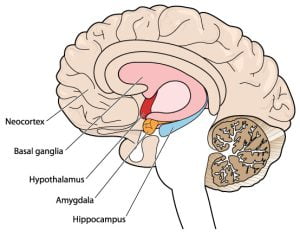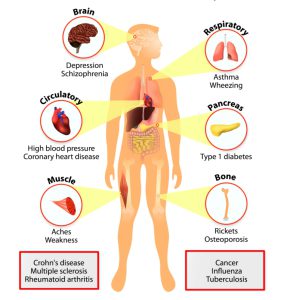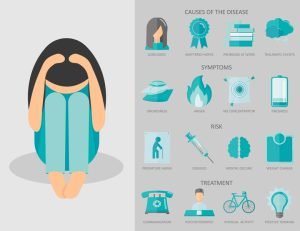Browsing: Clinical Depression Graphics
Comprehensive Information, Resources, and Support on Clinical Depression
The brain in cross section image shows the basal ganglia, hypothalamus, amygdala and hippocampus. Our brain is the central organ of the nervous system, and with the spinal cord it constitites the central nervous system. The brain is located in the head. It integrates sensory information and directs motor responses. In vertebrates, it is also the centre of learning and memory. Recent research suggests that depression doesn’t occur merely from having too much or too little of certain brain chemicals as was thought earlier. Instead, there are many possible reasons responsible for depression such as faulty mood regulation by the brain, genetics, stress, consumption of certain medications, and certain medical problems.
Based on several studies, it is thought that low vitamin D can cause clinical depression. However, there are some conflicting evidences also. Since vitamin D is remarkably safe, and depression is quite dangerous, therefor it is good to ensure those suffering from clinical depression to maintain a normal vitamin D level. You should contact a doctor to know how much Vitamin D should you take daily.
Clinical depression is a serious problem. It increases the chance of risky behaviors such as drug or alcohol addiction. It can also ruin relationships, cause problems at work, and make it difficult to overcome serious illnesses. Symptoms associated with depression are withdrawal from socializing, loss of interest in hobbies, constant irritability or sadness, loss of appetite, suicidal thoughts, etc. Several anxiety disorder, cardio- and neuro-logical problems, etc are the after affects of depression. Antidepressants are medicines to treat depression. Psychological counseling can also reduce its affect.
ADVERTISEMENT






